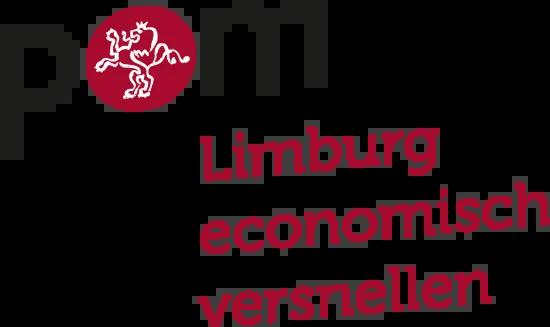
Powering the Future - Manufacturing meets Energy Transition challenges: State of the art in Long Duration Energy Storage (LDES)
This event is a collaboration between Sirris, Agoria, Energyville, Thor Park Genk, POM Limburg.
A market ready to explode
- With global shifts emphasizing the paramount importance of energy security, this event presents an opportunity to grasp the staggering $4 trillion potential of LDES by 2040. Dive into its vast applications, ranging from elevating the role of renewables in our energy blueprint to strengthening unstable power infrastructures.
- Long Duration Energy Storage (LDES) stands as the linchpin that allows renewable energy sources to fortify our power grids, propelling us faster toward a carbon-neutral future. The innovative technologies involving LDES offer a sustainable, affordable, and dependable transition to renewable energy.
- By 2040, a whopping 8 TW of long-duration energy storage is forecasted for deployment across global electricity grids.
What are the 4 LDES technologies?
This event will provide an overview of the four central LDES technologies, namely:
1. Electrochemical energy storage (Main topic of this event!)
Energy is stored in batteries, where energy is converted between chemical and electrical forms through chemical reactions. Electrochemical storage options, such as static batteries and flow batteries, offer benefits like long duration, safety, temperature resilience, scalability, and efficient cost structures. However, challenges in this domain include ensuring materials sustainability, optimizing battery lifespans, and addressing environmental concerns related to battery production and disposal.
2. Thermal energy storage (TES)
This technology stores heat or cold for later use and is categorized into three types: sensible heat, latent heat, and thermochemical. TES aids in balancing energy supply and demand across various time frames, boosts overall energy system efficiency, and helps reduce CO2 emissions and energy costs, especially when paired with renewable sources. On the flip side, TES systems need efficient mechanisms for energy conversion and discharge, and while they use inexpensive materials, considerations around the safety, efficiency, and scalability of these materials remain essential.
3. Mechanical energy storage
Involves converting electrical energy into mechanical energy using machinery and systems, often utilizing mediums like heat, water, or air. Prominent technologies include pumped hydro-storage (PHS), flywheels, and compressed air energy storage (CAES), with PHS and CAES having a long-standing presence since the early 20th century. Modern advancements in these technologies focus on enhancing their security, reliability, and overall storage duration, meeting today's energy needs with greater efficacy.
4. Chemical energy storage
Primarily utilizing hydrogen, offers a versatile way to store energy by converting it into high-energy-density fuels. Derived from various sources, including renewables, nuclear power, and fossil fuels, this stored energy can be reintroduced into the grid or used for industrial or transportation purposes. The dual functionality not only bolsters grid resilience but also presents diverse revenue streams and opportunities for reducing carbon emissions.
Key takeaways you'll get from the event
- Matching supply with demand
As wind, solar, and other renewables emerge as the most cost-efficient energy generation methods, there remains an inherent need for storage solutions that align supply with the variable consumer demands. LDES offers a solution to this challenge, eliminating the reliance on fossil fuels to address supply-demand imbalances.
- Security in energy
Recent upheavals in the energy sector have magnified the significance of energy security on global platforms. LDES plays a pivotal role in enhancing the reliability of supply, introducing innovative applications for renewable energy, and addressing challenges unmet by short-duration storage alternatives.
- Broad spectrum of applications
Discovery of the multiple roles LDES can play before the meter, but also behind the meter, from augmenting the renewables' proportion in our energy mix to bolstering unreliable power networks over extended periods. This spans scenarios from isolated regions to comprehensive renewable power purchase agreements (PPAs) and even extends to delivering grid stability services.
Register now!
Join us for this enlightening afternoon into the future of renewable energy storage, understanding the technologies, the strategies, and the monumental potential they hold. Register now and be part of the energy revolution!
Programme
| 12:30 – 13:00 | Welcome Drink & Registration | |
| 13:00 – 13:30 |
Setting the scene: energy storage - overview of current market and technology trends |
|
|
13.30 – 14.00 |
Setting the scene: LDES explained – technology overview, market insights and policy developments |
|
| 14:00 – 14:30 |
Overview of battery technologies and their applications |
|
| 14:30 – 15:00 |
Future evolutions in battery cell chemistry |
|
| 15:00 – 15:15 | Refreshment break | |
| 15:15 – 15:45 | Electrochemical Energy Storage: Beyond Conventional Batteries – case study redox-flow battery technology Cyril Daniels | Laborelec Research & Innovation | Business Developer Storage and Flexibility |
|
| 15:45 – 16:15 |
“What recent Elia studies tell us about future adequacy/dunkelflaute challenges?” |
|
| 16:15– 16:45 |
Ramping up manufacturing capacity of new LDES technologies |
|
| 16:45 – 17:15 | Panel Discussion: The Future of electro-chemical energy storage
|
|
| 17:15 – 17:30 | Closing Remarks & Acknowledgments Jean-Marc Timmermans (Agoria) en Pieter Jan Jordaens (Sirris) |
|
| 17:30-18:30 | Networking drink |
Participation fee
The participation fee per person, including coffee breaks and networking snacks, is only 115 euros (excl. VAT) for companies established in Flanders. This is thanks to support from VLAIO under the #industrypartnership. For others, the price is 385 euros.
This event forms part of the Industry Partnership, in which 17 Flemish innovation partners offer integrated services for stimulating growth and innovation in Flemish industry in the following three areas: Digitisation, Sustainability & Industry 4.0. This is led by Agoria and Sirris with support from the Agentschap Innoveren & Ondernemen.
In collaboration with






